My Ramblings Regarding the Baltic Peoples and Their Languages
Make no mistake, when it comes to Indo-Europeans and their languages, Belarus and the Belarusian language remain the only one I truly love. Those who know me will say I'm a dedicated Belarusaphile and depending on my mood Belarus is either my 2nd or 3rd favorite nation. Nevertheless, apart from Belarus, the Indo-Europeans who come closest to possessing even a fraction of the love I have for Belarus are the Baltic peoples and apart from Belarusian the only Indo-European languages I have some interest in learning are the Baltic languages (though strong arguments could also be made for me having an interest in Romansh, Sanskrit, Bosnian, Czech, Afrikaans, Cornish, Gothic, Northumbrian, Yaghnobi, Tocharian, and the Hazaragi dialect of Persian). The reason for my affinity to the Baltic peoples and languages is due to their traditional cultures and religions (as I still find the Baltic religion Romuva, or Rāmawa in Prussian, extremely fascinating), their histories, and their extremely close ties to Belarus in terms of culture, history, language, and even genetics. Indeed, some Belarusian nationalists have told me that they consider Belarusians a Baltic people speaking a Slavic language and Baltic linguistic influence is far more prominent in Belarusian than in other Slavic languages with the possible exception of Kashubian (some Belarusians, such as the linguist Jan Stankievič and those who follow his views, refuse to use the endonym "Belarusian" and prefer to call themselves "Great Lithuanian" to emphasize a connection to the Grand Duchy of Lithuania). A prominent example of Baltic influence on Belarusian can be seen in the commonly used word сябар (friend), which, while some may argue comes from Proto-Slavic *sębrъ, is suspiciously similar to the Estonian word for friend, sõber, which in turn comes from Proto-Finnic *sepra, a borrowing from a Baltic language; the similar-sounding Erzya word for neighbor, шабра, is also theorized to be a remnant of the Dnieper Balts who lived near the Mordvinic peoples in medieval times. Given what I know now, the Baltic language I find most interesting is Yotvingian/Sudovian, as it has the most connections to Belarus, to the point that one Belarusian nationalist told me that he believes the Yotvingians got lost and settled in what’s now Belarus, interbreeding with local Slavs, and that this is the ethnogenesis of the Belarusian people; even as late as 1860, a census by the clergy in the area of Horadnia had 30,929 people call themselves Yotvingians. Unfortunately, Yotvingian is barely documented as a language. Its closest linguistic relative, however, is better documented and even undergoing a revival.

So far, the only Baltic language I truly made an effort to learn is Old/Baltic Prussian. Although nowadays I rarely use Prussian or make posts in it, I still consider it my second favorite Indo-European language, and I've tried writing poems in it and made efforts to promote the language and its history, especially in dispelling the misconception that the term "Prussia" exclusively refers to Germans, when the so-called Prussians in the minds of most people were actually descendants of Christian German crusaders known as the Teutonic Knights or Teutonic Order. They called themselves "Prussian" only because it was the name of the nation that they conquered and proceeded to rule over; after being conquered by the Teutonic Knights in the 13th Century, there was a gradual process of Germanization over the course of several centuries. And while the Teutonic Knights translated parts of the Bible and the Catechisms into the local language, the loss of sovereignty to the Teutonic Knights and the imposition of Christianity and German culture which led to the eventual Germanization of the local nobility, the settlement of German colonists, as well as mass immigration of settlers and refugees from Lithuania, Poland, and other countries due to the Protestant Reformation, combined with the famines and Bubonic Plague epidemics that ravaged the countryside from 1709 to 1711, resulted in the original inhabitants of Prussia, also known as the "Old Prussians" or "Baltic Prussians," being wiped out by the early 18th Century. Though traces of the language and culture continued to survive in the form of toponyms, personal names, and loan words in the local German dialect of Low Prussian (such as kurp, which means shoe and comes from Baltic Prussian *kurpi as opposed to Standard German Schuh), these are now also virtually gone since historical Baltic Prussia is now divided between Russia's Kaliningrad Oblast and Poland's Warmia-Mazuria and Russian and Polish have become the dominant local languages. Although I definitely intend to come back to Prussian, I decided last year that I’ll stop learning it in favor of mastering a few other languages before returning to it, as learning Prussian was too challenging for difficulties including but not limited to the following:
1. The language is too underdeveloped and lacks a LOT of words (such as "middle finger" and "ring finger") and it's extremely difficult to express certain concepts such as mathematics.
2. Only 50 fluent speakers and maybe around 5 natives since it was only recently revived; I rarely have opportunities to practice in real life.
3. The grammar is hard for me, not only due to the scourge known as grammatical gender that's common to most Indo-European languages (and makes Belarusian and Old Prussian the only languages with grammatical gender I've truly attempted to learn), but also because there are only 4 grammatical cases (Nominative, Genitive, Dative, Accusative) and their usage is unclear to me in many instances, especially between Dative and Accusative. Although nowadays the issue with grammatical gender is slightly easier to comprehend since I've since learned that the general tendency is that words ending with "-s" are masculine, words ending with "-a" and "-i" are feminine, words ending with "-an" and "-u" are neuter, and words ending with "-is" can be either masculine or feminine.
4. Prussian is a West Baltic language closely related to Yotvingian whereas the two major Baltic languages are East Baltic and thus Prussian has a far more divergent lexicon even though the base source is the same Proto Indo-European; an example of this being the Proto Indo-European root *swep- being rendered as sapnis in Latvian, sapnas in Lithuanian, and *supnas in Old Prussian. This means that I can’t fall back on any language for inspiration or help (e.g. when I started learning Estonian, my already existing Hungarian and Erzya skills helped with my initial progress due to common Uralic lexicon; Japanese helps immensely with Manchu and to a lesser extent Kalmyk due to the similarities in grammar). Moreover, Latvian and Lithuanian are supported by national governments and thus have FAR more resources compared to Prussian; even Latgalian and Samogitian have more resources due to local support.

So far the only time I attempted to use Prussian for real was in 2017, during my first trip to Lithuania, where I stayed with a Prussian revivalist. Nonetheless, my Prussian was still extremely basic at the time and my clumsy attempts to speak to Lithuanians on the street with it failed as the language turned out to be far too distant from modern Lithuanian (despite the claims of Lithuanian chauvinists who claim otherwise). I still found dictionaries and even a chrestomathy of Prussian in bookstores in Vilnius without much effort including Etteikātas Prūsiskas Billas Wirdeīns (Dictionary of Revived Prussian) by Mikkels Klussis, Prūsiska Chrestōmatija (Prussian Chrestomathy) by Mikkels Klussis and Prāncis Arellis, and Primoji Prūsų Knyga (The First Prussia Book), which was published by Bibliotheca Baltica in 1995. In Klaipėda, traces of the Baltic Prussians were especially prevalent, owing to the city's history of being Baltic Prussian territory and a significant part of German Prussia as well. The local history museum contained a plethora of exhibits and information pertaining to both the Baltic Prussians and the later German state of Prussia and I also saw a statue of Herkus Monte, leader of the Great Prussian Uprising (1260-1274). Apart from Prussian, the main languages I used in Lithuania were Belarusian and Japanese (the former in Vilnius and Kaunas, the latter in Klaipeda, as I was visiting my Samogitian friend who speaks Japanese like a native). And nowadays I find it extremely difficult to use Prussian but I'm determined to come back to it after mastering a few other languages (particularly Belarusian, so that way I'll have another Balto-Slavic language to aid me).

The aforementioned experiences may make one ask why I decided to choose Prussian to begin with. The reason for this is quite simple: originally I couldn't decide whether to learn Latvian or Lithuanian so I gave up both in favor of Baltic Prussian. This turned out to be a major tactical error due to the inherent difficulties in learning Prussian for the paucity of resources and the near-impossibility of real-life practice. I am well aware that Latvian and Lithuanian are NOT the only other extant Baltic languages, but learning Latgalian is virtually impossible without a solid foundation in Latvian and learning Samogitian is unrealistic without prior knowledge of Lithuanian as virtually all materials for learning Latgalian and Samogitian are in Latvian and Lithuanian, respectively. Given what I know now, however, I'd definitely go with Latvian over Lithuanian if I could go back and reconsider my decision.

My experiences with Lithuanians are full of extreme ups and downs. On one hand, my positive view of Lithuania stems from my trip to Lithuania in 2017, which was the first independent vacation to another country I had ever planned and undertaken solely by myself. And said vacation gave me positive experiences overall. Lithuania is my 4th favorite country when it comes to national cuisine, Lithuanian history is extremely interesting for me, as I mentioned earlier the Baltic religion Romuva fascinates me (and during my first night in Lithuania I saw a Romuva ritual in Vilnius), Lithuania as a state is the friendliest to Belarusian nationalists, Lithuania has a Belarusian-language university (which I've sometimes considered applying to), Lithuania and Belarus share a lot of common culture (especially in connection to the Grand Duchy of Lithuania), some of my closest friends are Lithuanians (including the aforementioned Japanophone Samogitian, whom I highly respect and consider like a brother to me), Lithuanians overall have been kind to me in real life, and Lithuania is generally quite pro-Japan thanks to Chiune Sugihara.
On the other hand, there are many negative traits and people I associate with the Lithuanian nation as well. Lithuanian nationalists can be downright arrogant and hypocritical regarding Belarus, sometimes dismissing their nationhood and characterizing Belarusians as thieves who want to take over Vilnius (as the city is considered Belarusian by many Belarusians); a recent example is the flame war over the Belarusian national symbol Pahonia, which Lithuanian trolls on the English Wikipedia proceeded to whitewash and claim as solely Lithuanian, much to the outrage of a Belarusian friend of mine who regularly contributes to the Belarusian Wikipedia. Furthermore, Lithuanians can be stubborn regarding the Samogitian minority and their language, and I've personally argued with many who deny the existence of the Samogitian language and insist it's a lowly "dialect" of Lithuanian, while getting offended by the idea that Samogitians are a different nation with a different language. Moreover, in my experience Lithuanians can be highly arrogant because they used to be the largest country in Europe as the Grand Duchy of Lithuania (even though their population was mostly Belarusian at the time and Belarusian, albeit as medieval Ruthenian, had more status as a language in the combined Polish-Lithuanian Commonwealth than Lithuanian) and this colors their perspective of Belarusian history; in 2019 I got into a heated debate in real life with a Lithuanian woman in Tartu over the history of Belarus and she scoffed when I mentioned that I got my information from Belarusian sources. Additionally, on the personal side, some individuals I REALLY hate are Lithuanians, such as this one guy I'd kill if given the chance after he laughed at me when I got mugged in real life after I made a post about it on my Facebook profile and essentially victim-blamed me for getting mugged in the first place, mocking me despite the fact that I was vulnerable at the time since I had a sprained ankle. Another example would be these two girls from Suvalkija I attempted to flirt with who turned out to be unbearable and openly admitted that they were talking shit behind my back and planned to use me for money and took pride in the idea of leading me on online as they planned to reject and humiliate me in real life; such people have soured my opinion of Lithuania.

From a historical perspective, when it comes to Lithuania, the most loathsome figure that comes to mind is Nikolay Yezhov, the infamous NKVD chief who carried out the Great Purge in the name of Joseph Stalin and thus killed millions and de facto decimated many of my favorite nations by killing off their intelligentsia and carrying out massacres and deportations. Yezhov, shockingly, is widely seen as Russian even though he was born in Marijampolė, had a Lithuanian mother as well as a father who was fluent in his wife's language, and even officially declared that he himself was fluent in Lithuanian (though he denied this latter fact during his own NKVD interrogation prior to his execution). Moreover, from what I've seen, many Belarusian nationalists accuse Lithuania of stealing or distorting their national history, and from an etymological point of view this is especially believable. The common name for the Belarusian people and their language, formerly rendered in English as "Byelorussian" or "Belarussian" and often rendered in other languages as a translation of “White Russian,” is in my opinion a huge mistake that leads people to erroneously conclude that Belarusians are an offshoot of Russians, due to the word "Russian" appearing in the name. Historically, the term "Litvin" was used in reference to Belarusians, especially in reference to inhabitants of the Grand Duchy of Lithuania in the modern territory of Belarus. In medieval times, and even as late as 1897 (as evidenced by the Russian Empire census of that year), Lithuanians (and their language) were known as Aukštaitian, which is the name of the Lithuanian dialect on which the modern standard for Lithuanian is based. As a result, I’ve encountered Belarusians who reject their demonym in favor of “Litvin” or even “Great Lithuanian” due to the influence of the earlier-mentioned Jan Stankievič. Additionally, while I find Lithuanian history interesting, most of the aspects I find interesting, aren’t exclusively, or even primarily, Lithuanian in content and character. Most of the events, individuals, and developments in Lithuanian history that fascinate me are overlapped with, or more heavily connected to, the histories of Belarus, the Baltic Prussians, Japan (Chiune Sugihara), Hungary (István Báthory), and the Crimean Tatars (Lipka Tatars and Karaim).
In a stark contrast to my experiences with and views on Lithuanians, Latvia is a nation I have recently gained a massive interest in, to the point that I now deeply regret not being interested in the Latvian language earlier in my life. Interestingly, although I've interacted with several dozen Lithuanians both online and in real life (though admittedly, apart from the time I actually visited Lithuania my real life interactions with Lithuanians is limited to only about five or six people), I have interacted with between three and five Latvians as of the time of this writing (December 2021), both online and in real life. The first two I met at the International Finno-Ugric Students Conference in Vienna in 2019. Another is a Latvian girl from Olaine I befriended online last year whom I nowadays regularly correspond with. There's also a Latgalian woman on Facebook I befriended who occasionally helps me when I want to translate a phrase into Latgalian (but she hasn't made it clear whether she identifies exclusively as Latgalian or as both Latgalian and Latvian). And when I crossed the Estonian-Latvian border to an outpost near Alūksne in December 2019 with an Estonian couple I was spending Christmas with, we went to a local shop to buy drinks (as Estonians go to Latvia to buy cheaper alcohol), but since I spoke to the cashier in Estonian, I couldn't determine whether she was Latvian or Estonian. So far, my experiences with Latvians on the personal level has been overwhelmingly positive.
One of the striking contrasts between Latvia and Lithuania that I've noticed is that the latter seems FAR more prominent than the former in both world history and in terms of general notoriety and even in popular culture (e.g. the protagonist of one of my favorite novels, The Jungle by Upton Sinclair, is a Lithuanian who even speaks the language at times in the novel, meanwhile I can't think of ANY Latvian characters in fiction). Nevertheless, when I take a closer look at Latvian culture, history, achievements, and nationhood, I find a plethora of interesting topics and must conclude that Latvia is criminally underrated compared to Lithuania. For instance, jeans are a Latvian invention, though often assumed to be an American or Jewish invention, as its inventor, Jacob W. Davis, was a Latvian Jew who invented jeans after emigrating to America, but received funding from Jewish-American Levi Strauss, thus making the latter's name synonymous with the product instead. Other notable Latvians include Vilhelms Ostvalds who earned a Nobel Prize in 1909 for his potato farming process responsible for feeding up to half the world's population and Juris Upatnieks who pioneered 3D holography.
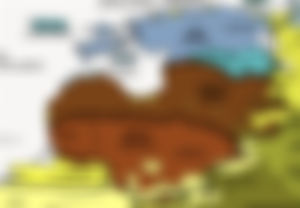
The existence of Latgalian and especially Livonian as minority languages of Latvia are also of great interest to me, the latter due to my love of Uralic nations and their languages. The massive Uralic linguistic influence on the Latvian language itself is another reason for my recent interest in the language and this influence is surprisingly obvious and includes first-syllable stress (a common characteristic in Uralic languages) and many basic words being of Uralic origin including māja (house), puika (boy), and sēne (mushroom). Moreover, unlike Samogitian in Lithuania, Latgalian and Livonian have far more popular and official support in Latvia.
Unlike the history of Lithuania, Latvian history is far more interesting to me on its own while Lithuanian history catches my interest primarily due to involvement from other nations I like. In particular, the Grand Duchy of Courland and Semigallia is one of my favorite historical states as back then Latvia was an empire with colonies in Africa and the Caribbean, becoming the only Baltic nation to possess a colonial empire. Although it was ruled by Baltic Germans, both Latvians and Baltic Germans were sent to the Duchy's colonies, and I often like to imagine that if the Grand Duchy of Courland and Semigallia had lasted a few more centuries, long enough for the Latvians to take over from the Baltic Germans, and then spread the Latvian language to Africa and the Caribbean, it would have made Latvian a truly powerful Baltic language with speakers on multiple continents. It's a shame that the Grand Duchy of Courland and Semigallia didn't last long enough and an even bigger shame that the total number of ethnic Latvians today is even smaller than their population in the 1920s, due to the sheer brutality of World War II and the intense Russification of Latvia after the war. This may be why I have an exceedingly hard time finding Latvians both online and in real life. Whenever I search for Latvians or Latvian speakers on language exchange sites or even search for people from Riga on Facebook and VKontakte, I seem to EXCLUSIVELY come across members of the Russian minority of Latvia, and no ethnic Latvians.

Moreover, I also find it intriguing that Latvians were seemingly overrepresented among the Bolsheviks when the Russian Revolution and Russian Civil War started, and that many Latvian Riflemen existed as an elite force comparable to the Cossacks who fought on both the Bolshevik side and the Latvian side in the Latvian War of Independence. The lack of recognition for this may be due to the purge of Latvian Bolsheviks during Nikolay Yezhov's "Latvian Operation" during the Great Purge. This also brings to attention the sole Latvian historical figure I hate: Vilhelms Knoriņš. A Latvian Bolshevik who was leader of the Belarusian SSR twice (1920-1923; 1927-1928), he was a genocidal hypocrite who openly advocated the erasure of Belarusians and stipulated that Belarusians are not a nation and that, in his own words: "ethnographic features that separate them from the rest of the Russians should be eliminated." This is hypocritical given how modern day Russian ultranationalists say the same thing about Latvians and even in Knoriņš's day Nazi Germany planned to implement Generalplan Ost to kill off 50% of ethnic Latvians and Germanize the rest on grounds that miscegenation with Baltic Germans for centuries would have made them easy to assimilate. For this reason, I believe his execution as part of the Latvian Operation was well deserved. Outrageously, there is a street even now in Minsk named after him, despite his open intention to erase Belarusians as a nation. Nevertheless, Knoriņš is the sole figure in Latvian history I detest.

I repeat, that Belarus is my favorite Indo-European nation and Belarusian my favorite Indo-European language. But the Baltic peoples and their languages are the next best in my opinion, with Baltic/Old Prussian being my favorite Baltic language and I know that someday I WILL devote myself to mastering it. However, the possibility of me learning another Baltic language is still there, especially Latvian. And despite what I've written, I still have a genuine affinity for all Baltic peoples and languages. Finally, although looking back I think Latvian may have been a better choice as my first Baltic language, I’ll never completely give up on Prussian.

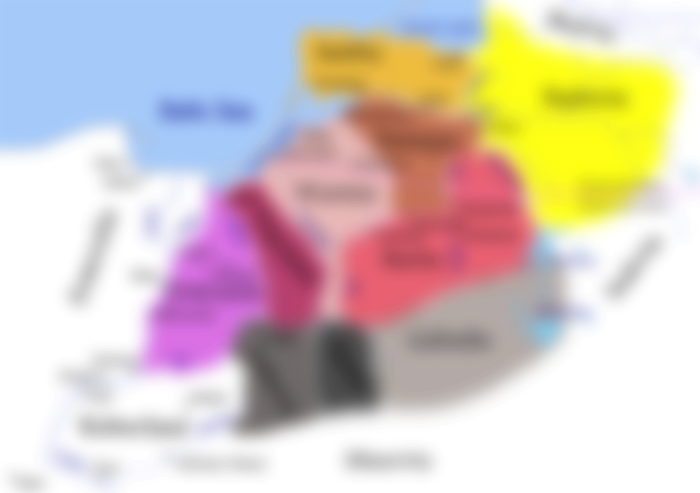

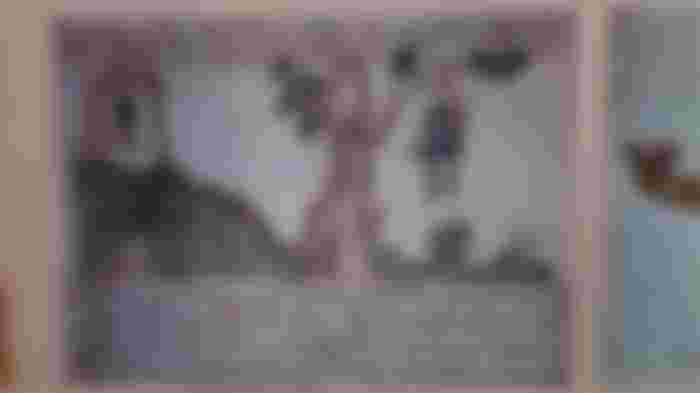


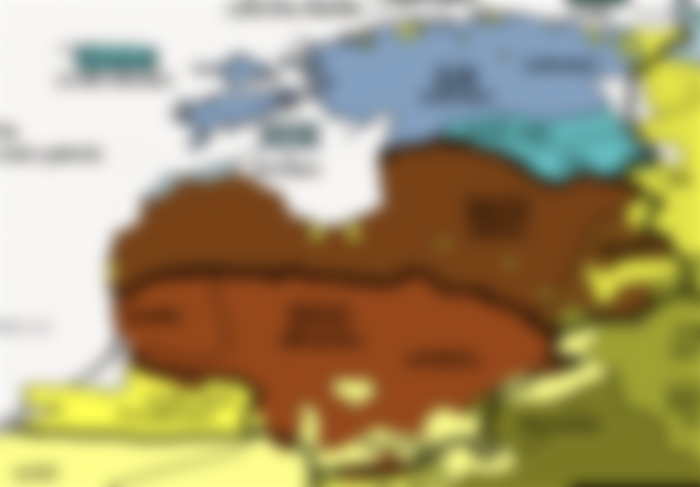
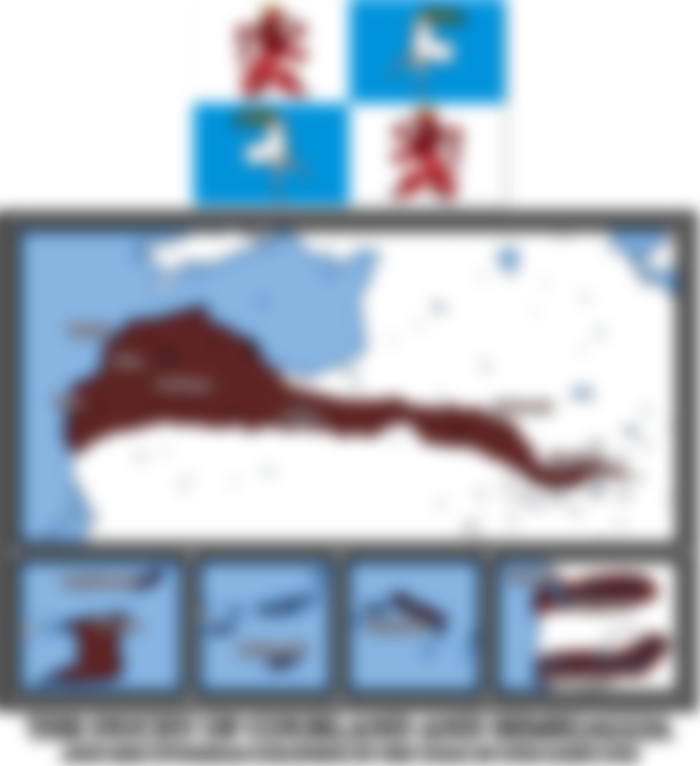


Diversity of people expect different languages and dialects. There is always confusion with the translation between two people making conversation but we are fortunate there is one international language that can be use and that is English